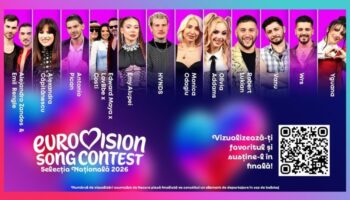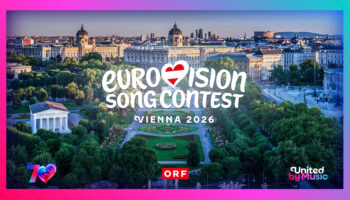Since 2004, when Serbia & Montenegro debuted in ESC with Lane moje, and then the Serbian debut and winning as independent country in 2007, Duška Vučinić is the person who always was in the team who determined the Serbian Eurovision path.
She talked to the Croatian eurovision site eurosong.hr about her experience and things about this year Serbian national selection.
After several years, Serbia picks its song via a festival again. Why did you choose to return to the festival format?
In the past three years we have found an exceptionally good (at least that’s how it turned out) way to select a Serbian representative for Eurovision. And then at one point it hit us – Serbia wanted a festival because there are none. And when you have a festival like this which is a competition and where you get a winner who will represent you in a prestigious musical competition that is Eurovision, we understood that this was the moment to return to the festival way to select an entry. We were right, seeing as so many composers signed up a total of 171 songs out of which a known selection committee picked 15, because that is what we determined with the rules of Beosong.
When the selection committee picked the 15 songs a lot of commotion was raised with the authors whose songs didn’t make it. How do you comment such topics you can find in the press?
There’s nothing for me to comment, it’s always like that. Not just when it’s such a festival but also when you make a movie festival. That’s simply what people do, not just in our country. I communicate with colleagues from other European countries and national broadcasting companies who organize such or similar events. It is simple and normal – the media is dying to get any kind of information. I responsibly claim that here nothing such has been done in that sense.
I assume that you heard some of the songs that will be performed in Beosong. Are you satisfied with the songs picked by the committee?
To be honest, I only went to basic music school and I cannot say that I am a music expert because I handle some other jobs completely different in genre. The songs are very respectable and nice, picked from quality composers. What I’m convinced with is the competence of the people that represented the committee and I’m sure that their selection of the best songs was unmistakable.
Since the juries returned to Eurovision, Serbia couldn’t adapt for some time. The votes of the jury and the televoting could never be harmonised and the results varied vastly. However you made it with Joksimović in Baku. Has Serbia finally found a recipe to equally impress both the jurors and the televoters? Is there an actual recipe or is luck just a big part of it all?
There is no specific recipe. We thought about it last year and we exchange our experiences with other colleagues from other national broadcasting agencies. You never know, for example, last year a song, which I’m sure five years ago wouldn’t even make it to the final, won. The taste of the audience that likes Eurovision started changing. We started listening to MTV, VH1, started turning towards some other things. The one thing that is certain – if you have a quality vocal performance and a quality ballad you cannot go wrong. Željko was one of the biggest stars in last years’ Eurovision, a man known all over Europe and around the world and he was a good choice.
You’ve been doing this since 2004. How much did the Eurovision Song Contest change in that time?
Eurovision changes, we change, tastes change – everything changes. We all grow alongside each other and it seems to me like it’s all right. Younger generations of people are coming to work on these projects and new generations of artists are coming to present their songs.
What is the difference between the popularity of Eurovision in Serbia today and in 2008, when you were the hosts in Belgrade?
Last year the final in which ŽeljkoJoksimović performed was one of the most viewed programmes in the past year. Eurovision is still popular over here.
What is your favourite Eurovision song?
It was the year 2004, the name of the group was Athena, and the song was For real. They represented Turkey. It was a completely fascinating song for me and I still like to listen to it today. It is completely different and doesn’t fit in Eurovision. Other than that it belongs to that certain music style and genre I love.




